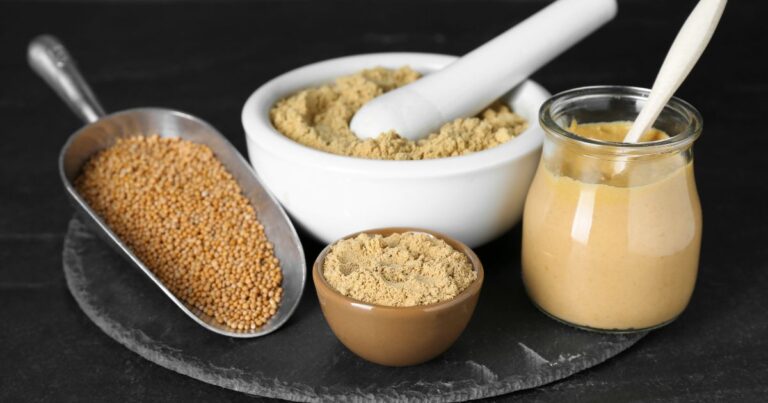Eating Nuts on A Healthy Diet Comes with A Few Downsides
Yes, most nuts can be hard to digest for many people. While they’re packed with essential nutrients and healthy fats, their high fiber and fat content make them challenging for our digestive system. But don’t worry; this doesn’t mean you have to give them up entirely. I’m here to show you how to eat nuts so they are easier to digest safely; plus, I’ll show you the five hardest nuts to digest along with the health benefits of nuts and the potential risks of eating too many nuts. Incorporating nuts into your diet can help you enjoy their benefits without discomfort.

Nuts are like that one friend who’s incredibly fun to hang out with but always leaves your house a bit of a mess. You can’t help but love them for all the good times and the nutritional punch they pack. But here’s a nutty question: are nuts hard to digest?
Growing up in a big Sicilian family, nuts weren’t just snacks; they were a part of the meal. We use toasted pine nuts on top of salads, raw nuts mixed into spreads like a nice creamy almond butter, and even roasted Brazil nuts on top of our desserts.
Yet, I remember my grandmother cautioning me about eating too many at once, advice that didn’t make much sense to a kid as my nut cravings could get me to demolish a packet of almonds in one sitting.
Fast forward a few years, and I’ve started to see what she meant. I’ve come to understand that while nut consumption has a powerhouse of nutrients, they come with a small crack in the shell – they can be a bit tough on the digestive tract and gut health.
Table of Contents
Is It Hard To Digest Nuts?
Are nuts hard to digest? Although we know the simple answer is Yes, it goes much deeper than that
I want to share not just the why and how of nuts being hard to digest but also the five toughest nuts for your digestive system. And because I’m all about solutions, I’ll offer some handy tips to help you enjoy these nutritional powerhouses without discomfort.
We’ll also explore their incredible health benefits and consider any potential risks. Let’s crack it open!
Why Are Nuts Hard to Digest?
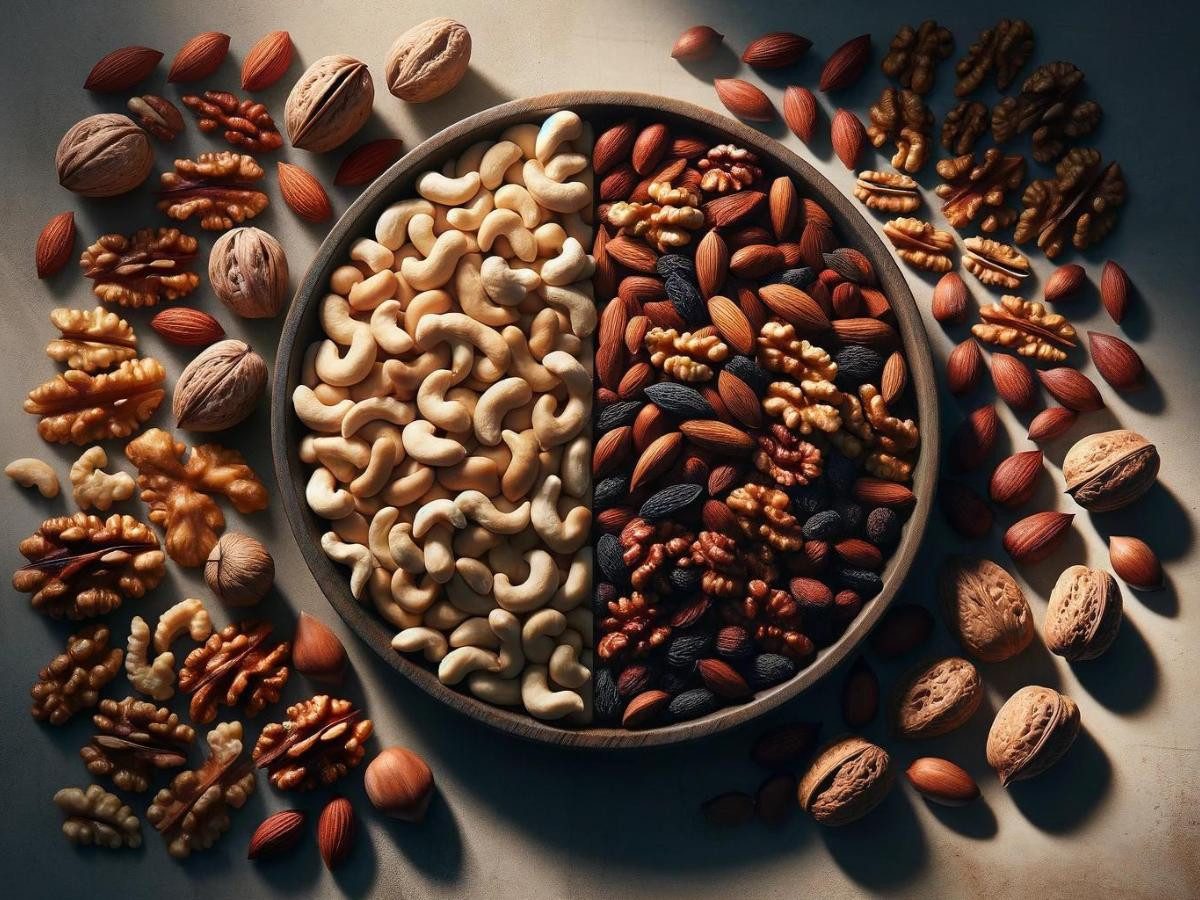
Picture this: you’re enjoying a handful of your favorite crunchy snacks, completely unaware of the tiny battle raging inside your stomach. Why does this happen? It all boils down to the nature of nuts themselves. Let’s break it down, shall we?
Fiber Fiesta: Nuts are rich in fiber, which, don’t get me wrong, is fantastic for your digestive health in the long run. However, in the short term, your digestive system has to work extra hard to break down this fiber.
Fat Content: The healthy fats in nuts, which are great for your heart and overall health, also require more digestive effort. Your body needs to produce more bile to break down these fats, making your digestive system work overtime.
Phytates and Tannins: These naturally occurring compounds in nuts can inhibit the absorption of certain nutrients and make digestion more challenging.
So, while nuts and nut butter are undeniably nutritious and a fantastic addition to your diet, their high fiber, fat content, and phytates and tannins can make them tougher to digest for some people.
The 5 Hardest Nuts to Digest:
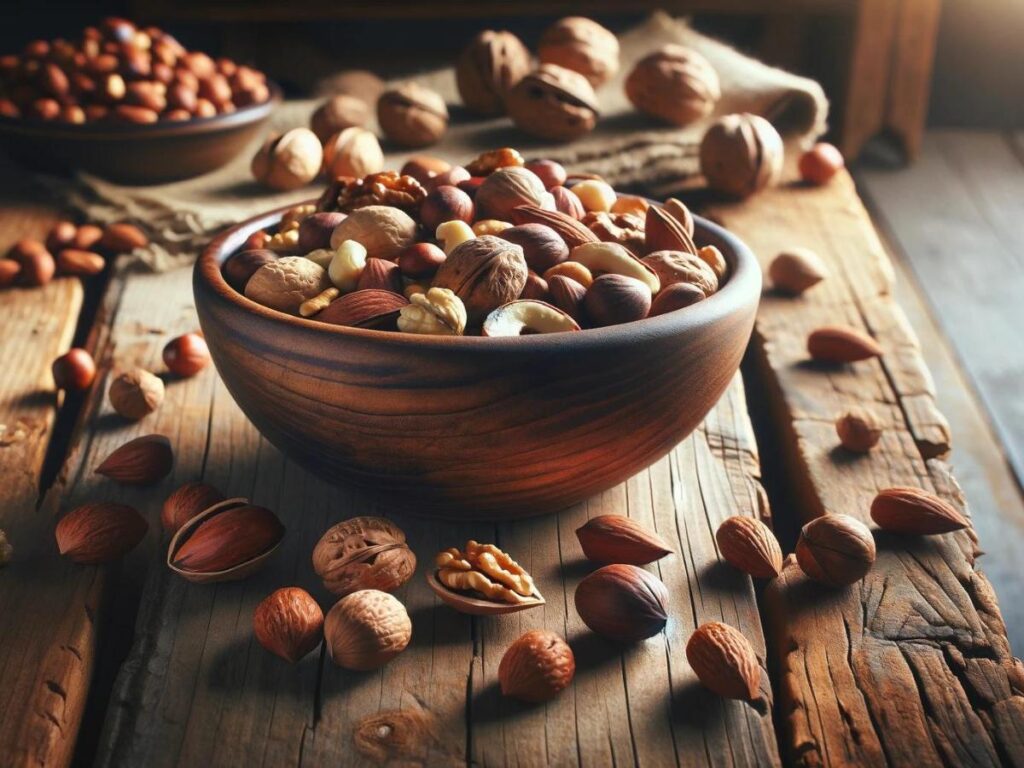
Not a nut was created equal — at least, not in the eyes of your digestive system. Here are the five nuts that are notoriously tougher to digest, making them potential party crashers in the world of snacks:
Almonds: Don’t let their popularity fool you. They are high in fiber and have a firm texture, making them a bit challenging to break down.
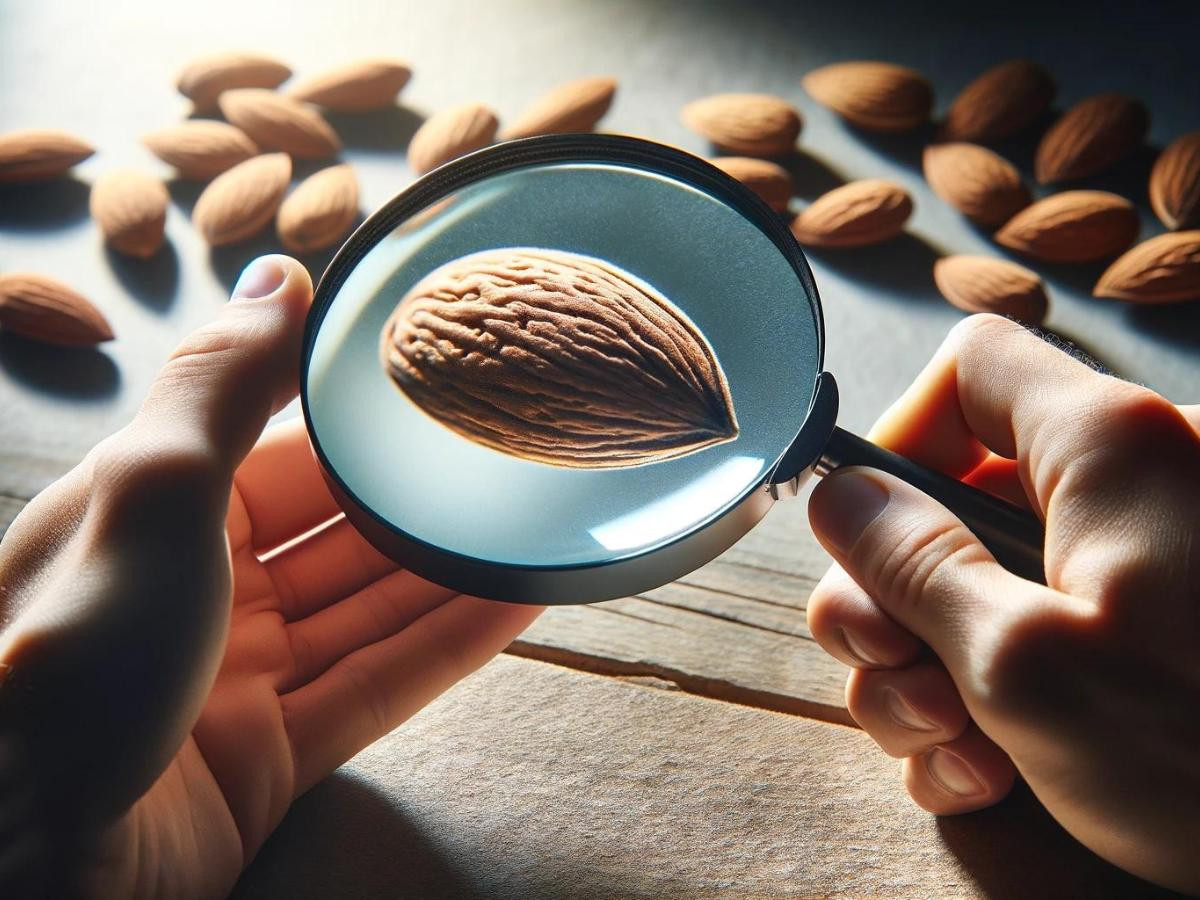
Walnuts: With their high levels of tannins, walnuts are like the guests who are a little harder to get to know. These compounds can lead to digestive discomfort for some, making walnuts a tough nut to crack, both literally and figuratively.

Hazelnuts might be smaller, but they pack a punch in the fiber department. They can be like those mini appetizers that are surprisingly filling—a little goes a long way, and too much can leave you feeling stuffed.

Pistachios: Aside from their vibrant color and unique flavor, pistachios contain compounds that might not sit well with everyone’s digestive system.

Cashews: Though creamy and delicious, cashews are high in fat and phytates, making them harder to digest for some. Imagine them as the rich, decadent dessert of the nut world — irresistible but potentially heavy on the stomach.

How to Make Nuts Easier to Digest

Let’s not let those tough tree nuts get the best of us. Like finding the right music to set the party mood, there are ways to make these nuts more digestible and keep your digestive system dancing smoothly. Here are some tried-and-true tips to help you enjoy nuts without the unwanted afterparty:
Soaking and Sprouting

When you soak nuts, it helps to soften them, making them easier to chew and digest. Sprouting goes a step further, reducing the levels of phytates and tannins that can make nuts hard to digest.
Chewing Well

This might seem like a no-brainer, but it’s worth emphasizing. Taking your time to chew nuts thoroughly breaks them into smaller pieces, making it easier for your digestive system to handle.
Limit Quantities
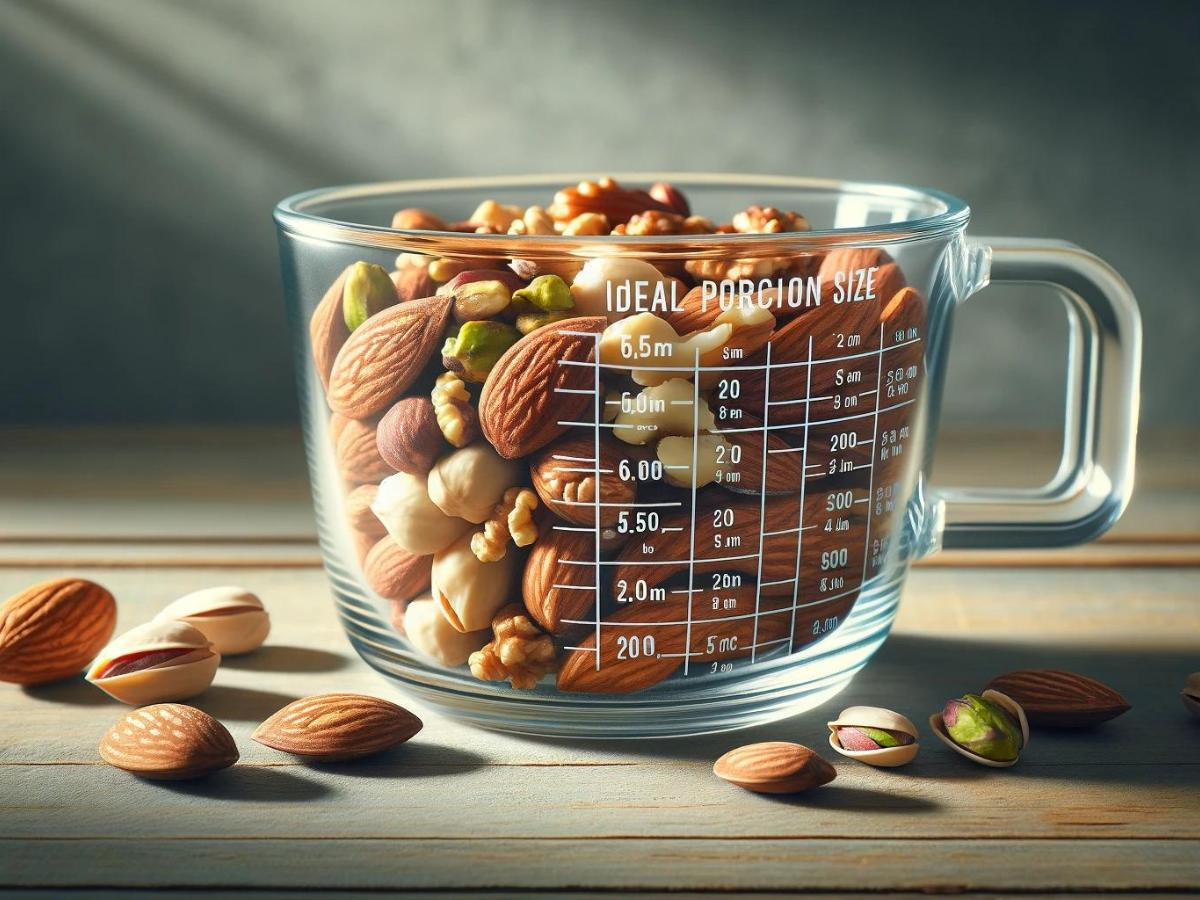
Even the best parties have their limits. Starting with small amounts of nuts and gradually increasing them allows your digestive system to adjust.
Pair with Other Foods

Combining nuts with other foods can help buffer their impact on your digestive system. For example, eating them with fruits or yogurt can help ease digestion. It’s like having a good balance of guests at the party; the right mix can make for a smoother experience.
By incorporating these simple strategies, you can help ensure that enjoying nuts doesn’t lead to digestive discomfort. Think of these tips as your party planning checklist, ensuring that everyone — including your stomach — has a good time.
Benefits of Eating Nuts
Despite their occasional hard-to-digest reputation, nuts are nutritional treasures packed with benefits that make them a must-have in your diet. Here’s why these little nutritional powerhouses are worth the extra effort:
Heart Health
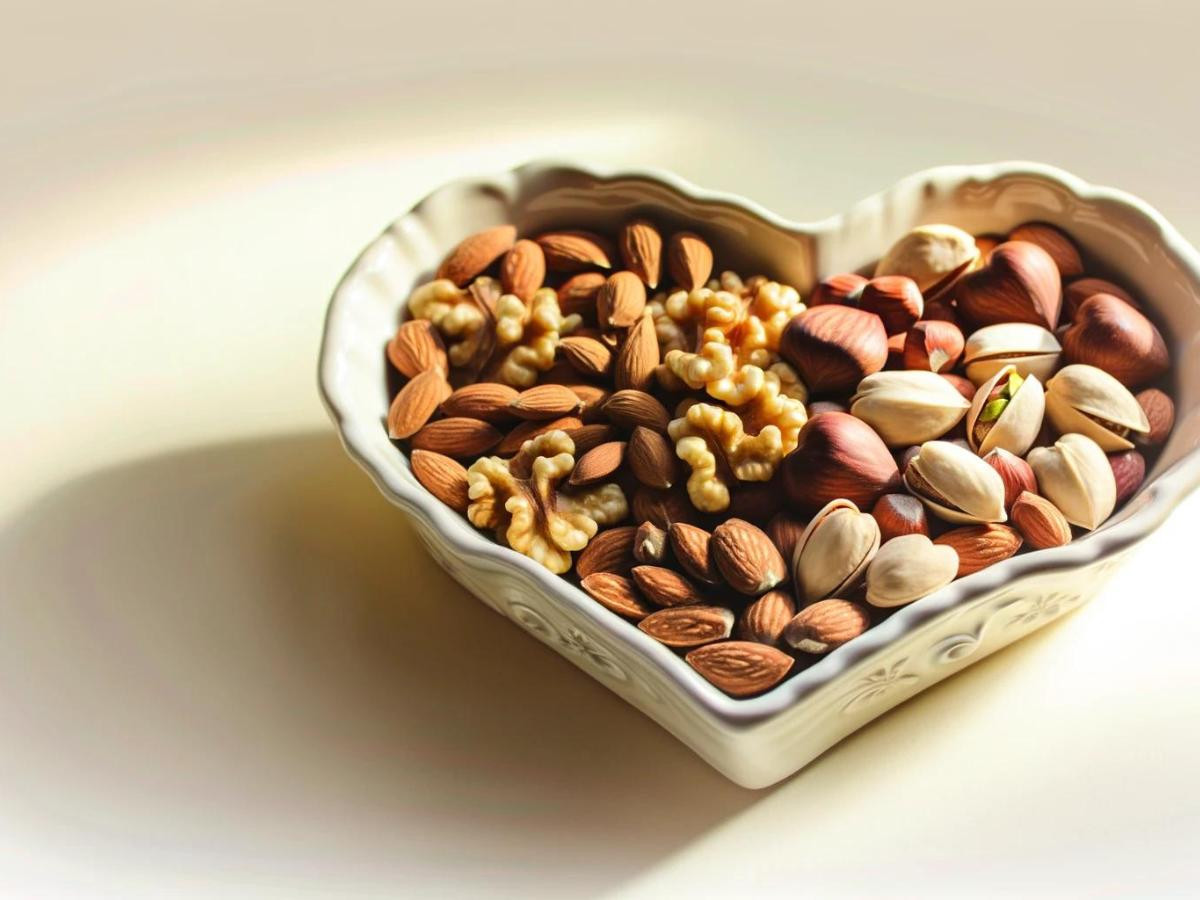
Nuts are like friends who always have your back, especially regarding your heart. Rich in unsaturated fats, omega-3 fatty acids, and fiber, they help to lower bad cholesterol levels and improve the health of your arteries.
Weight Management

Contrary to what you might think, nuts can be great allies in weight management. Their combination of protein, fiber, and healthy fats makes them very satiating, helping to curb hunger and prevent overeating.
Nutrient-Rich
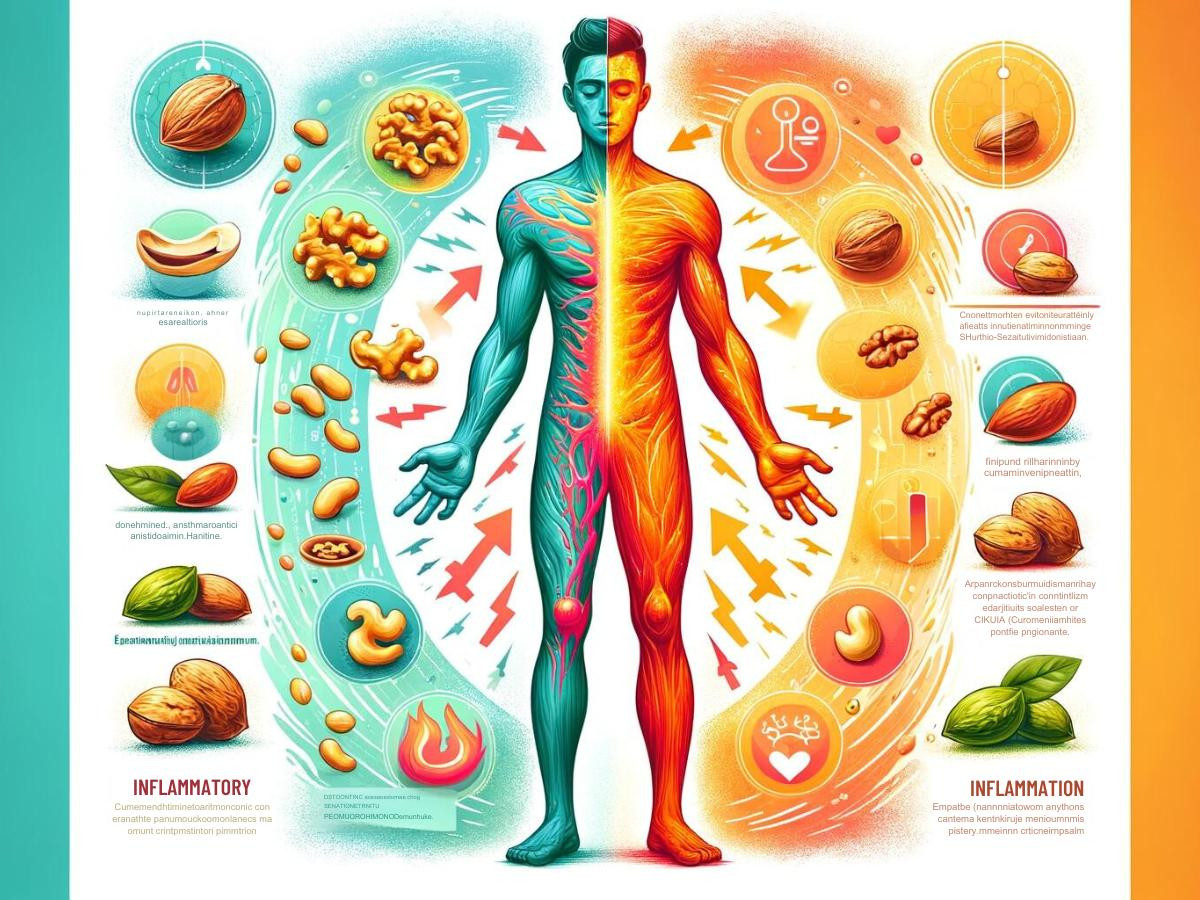
Nuts are like the multi-talented guests at the party, bringing a variety of skills (or, in this case, nutrients) to the table. They’re packed with vitamins and minerals, including magnesium, vitamin E, and selenium, supporting everything from your bones to your brain.
Antioxidant Powerhouses

The oxidative stress party crasher doesn’t stand a chance against nuts. Many nuts are rich in antioxidants, which help to combat oxidative stress and inflammation, contributing to overall health and well-being.
Reduced Risk of Certain Diseases

Regularly eating nuts has reduced the risk of several chronic diseases, including type 2 diabetes and certain cancers. It’s like nuts are the health insurance policy that helps keep you covered.
With all these benefits, it’s clear that nuts deserve a place at your table (or in your snack drawer). Gently introduce them to your digestive system, and they’ll repay you with a wealth of health benefits.
Potential Risks

As much as we’ve celebrated the numerous benefits of nuts, it’s crucial to address that sometimes, the party can get a little out of hand. Here are a few potential risks associated with nuts that are worth keeping in mind:
Digestive Discomfort: We’ve touched on this already, but it bears repeating. For some people, especially those with sensitive digestive systems, eating nuts can lead to bloating, gas, or other forms of gastrointestinal distress. It’s like playing your music too loud at a party; only some people will. They can be like those mini appetizers that are surprisingly filling—enjoy them.
Caloric Density: Nuts are nutrient-dense and excellent for you, but they are also high in calories. Enjoying them in moderation is key to preventing unwanted weight gain. Think of them as those delicious but rich party snacks—a little goes a long way.
Allergies: Nut allergies are among the most common food allergies and can range from mild to life-threatening. If you or someone you know has a nut allergy, it’s essential to steer clear of nuts altogether. It’s like having a guest at the party who really shouldn’t mingle with certain others for their own safety.
Quality and Additives: Not all nuts are created equal. Some are roasted in unhealthy fats or contain salt and other additives. Choosing raw or dry-roasted nuts without added salts or sugars is like curating the guest list for your party—opt for quality over quantity.
Acknowledging these risks isn’t meant to scare you away from enjoying nuts. Rather, it’s about being informed and making choices that align with your health and well-being. As any good party planner knows, it’s all about balance and moderation.
Wrapping Up

With their delightful crunch and nutritional benefits, nuts are undoubtedly worth including in your diet. Knowing how to make them more digestible and aware of the potential risks, you can confidently incorporate them into your meals and snacks.
Remember, the key to a successful party (and a healthy diet) is balance, variety, and moderation. So go ahead, enjoy that handful of nuts, start a roasted nut food truck if you are feeling crazy and keep the party in your digestive system a happy one!
Have Fun with it, buy raw nuts, and roast them yourself. The joy, smell, and health benefits you get when you roast nuts at home can make your day!
Thanks for joining me on this nutty adventure. Here’s to enjoying the benefits of nuts while navigating their challenges with ease. Cheers to your health and happiness, one nut at a time!
FAQ and Additional Information
Why does my stomach not digest nuts?

If you find that your stomach doesn’t digest nuts well, it’s likely due to a few key reasons related to their nutritional composition and how your digestive system works. Here’s a breakdown of why nuts might be causing you some trouble:
High Fiber Content: Nuts are rich in dietary fiber, which is excellent for your digestive health. However, if your body isn’t used to a high-fiber diet or consumes a lot of nuts in one sitting, the fiber can be hard to break down. This can lead to feelings of bloating, gas, or discomfort as your digestive system works overtime to process the fiber.
High-Fat Content: Nuts contain healthy fats that benefit your heart and overall health. However, high-fat foods can be more difficult to digest than foods high in carbohydrates or protein. The fat in nuts slows down the stomach-emptying process, which might cause discomfort for some people.
Phytates and Tannins: Nuts contain compounds known as phytates and tannins. These can interfere with the absorption of certain minerals and can also make nuts harder to digest. These compounds bind to minerals such as iron and zinc, reducing your ability to absorb them and contributing to digestive discomfort.
Individual Sensitivities or Allergies: Some people may have a sensitivity or allergy to nuts, which can cause digestive issues, among other symptoms. Nut allergies can lead to severe reactions, but even without a full-blown allergy, some individuals might find their digestive system particularly sensitive to nuts.
Chewing Habits: Nuts must be thoroughly chewed to break them down into smaller, more manageable pieces for your digestive system. If nuts are not chewed well, it can lead to incomplete digestion, as the larger pieces are harder for your stomach and intestines to break down entirely.
What Can You Do?
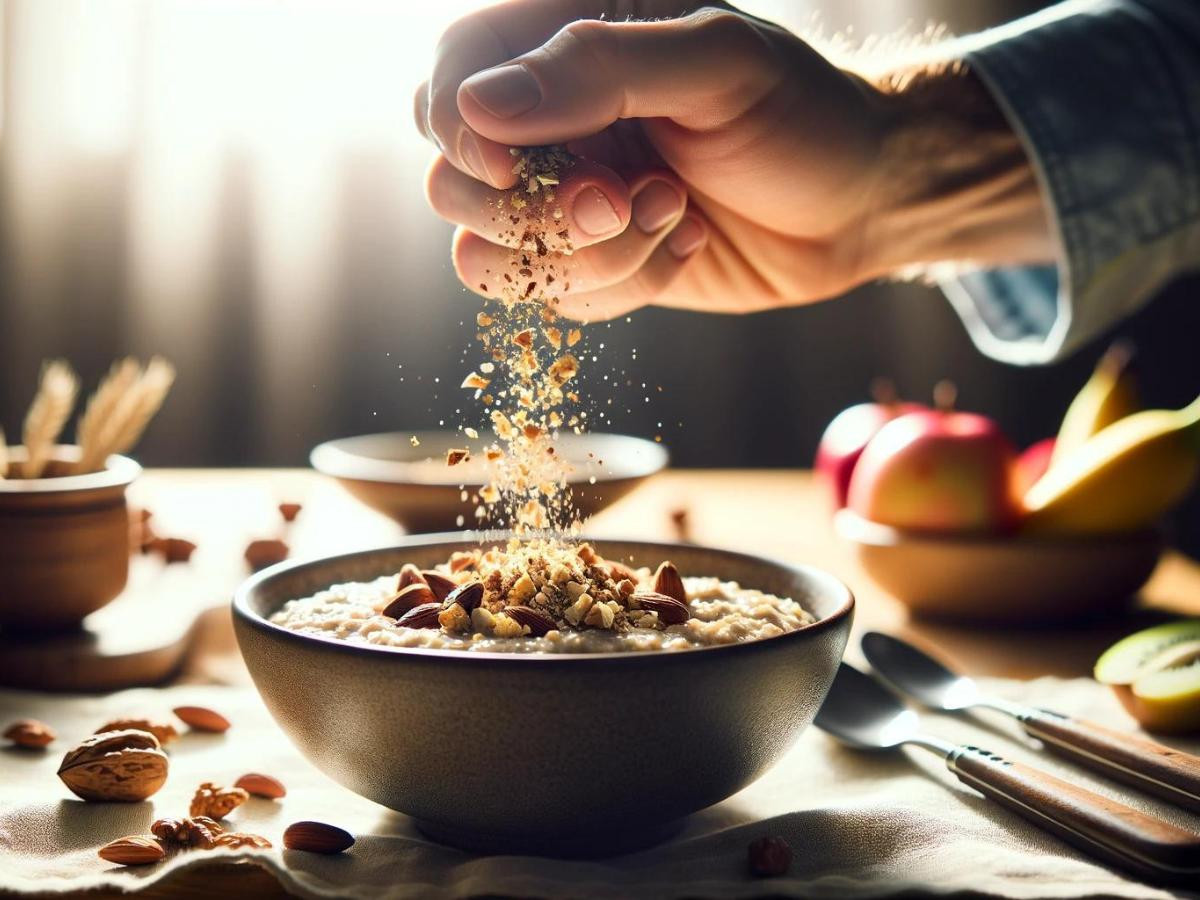
If you love nuts but they don’t seem to love you back, consider these adjustments:
Eat Nuts in Moderation: Instead of consuming a large quantity at once, try eating smaller amounts of nuts and see how your body responds.
Soak and Sprout Your Nuts: Soaking and sprouting can help reduce the levels of phytates and make nuts easier to digest.
Chew Nuts Thoroughly: Take your time to chew nuts well before swallowing to aid digestion.
Try Different Types of Nuts: Some nuts might be easier to digest than others. Experiment with different types to see which ones your stomach can handle better.
Consult a Healthcare Provider: If you continue to experience digestive issues or suspect a nut allergy, speaking with a healthcare professional for personalized advice and potential dietary adjustments is a good idea.
Understanding these aspects and making some tweaks to how you consume nuts can help mitigate digestive discomfort and allow you to enjoy the nutritional benefits of nuts without the unwanted side effects.
Which nuts should be avoided?
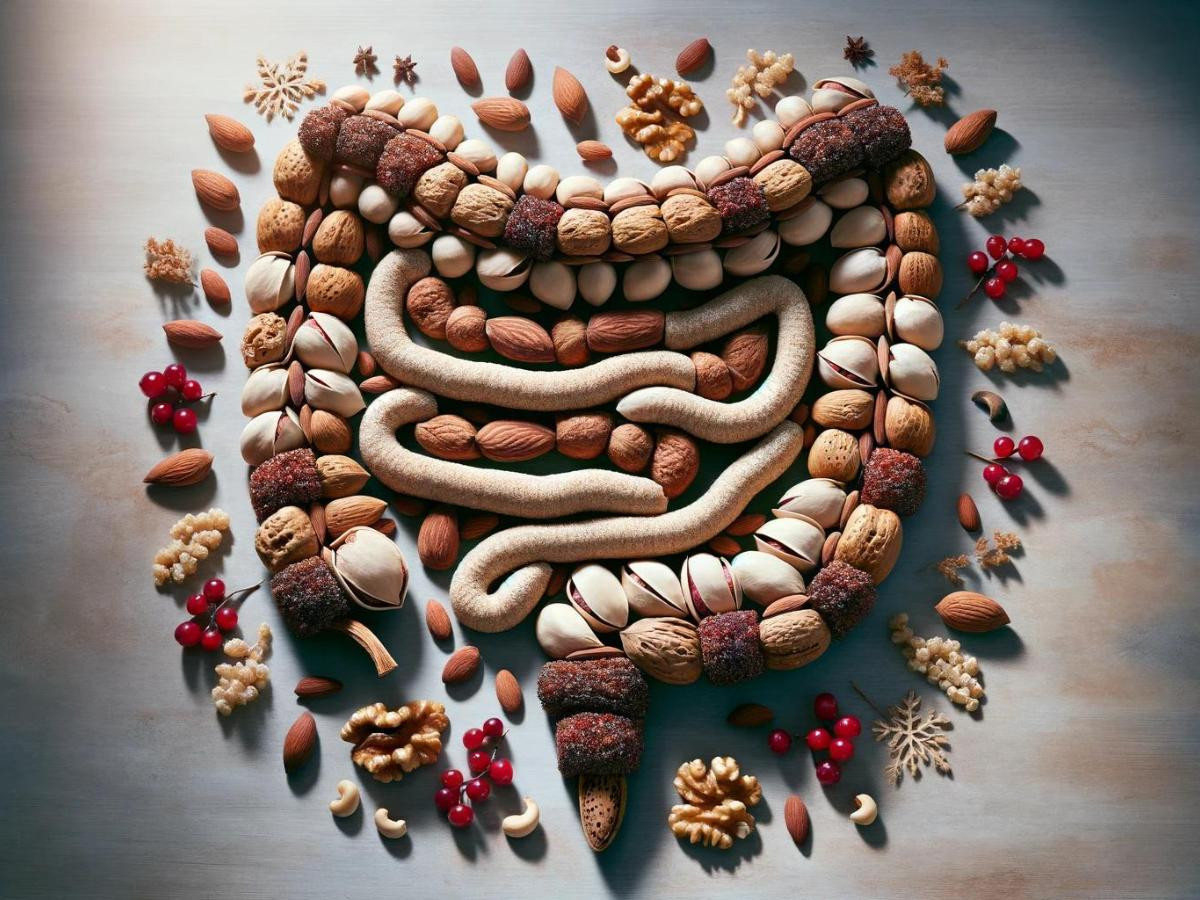
If your stomach has trouble digesting nuts, there might be several reasons behind it, each connected to the natural properties of nuts and individual digestive sensitivities. Let’s explore this before highlighting which nuts you might consider avoiding or limiting:
Reasons Why Nuts Can Be Hard to Digest:
High Fiber Content: Nuts are rich in dietary fiber, which is excellent for overall digestive health but can cause bloating, gas, and discomfort in some people, mainly if their digestive systems aren’t used to high fiber intake.
High-Fat Content: The healthy fats in nuts are beneficial for cardiovascular health, but they slow down the digestive process, which can lead to discomfort for some.
Phytates and Tannins: These compounds, naturally found in nuts, can inhibit minerals’ absorption and make nuts harder to digest for some people.
Nut Allergies or Sensitivities: Some individuals may have allergies or sensitivities to specific nuts, leading to digestive issues and other symptoms.
Nuts to Consider Avoiding or Limiting:
If you find that nuts are causing digestive issues, consider which types are most likely to cause problems. Here’s a quick rundown based on general digestibility and common sensitivities:
Almonds: High in fiber and potentially hard on the stomach for some.
Walnuts: Their skin contains tannins, which can be challenging to digest.
Hazelnuts: Similar to almonds, they have a high fiber content that can be problematic.
Pistachios can cause bloating and discomfort for some due to their fiber and fructan content.
Cashews: High in fat and phytic acid, making them harder to digest for some individuals.
Tips for Better Digestion of Nuts:
Soak or Sprout Nuts: Soaking nuts overnight in water can help reduce phytates and tannins, making them easier to digest. Sprouting takes this a step further.
Chew Thoroughly: This helps break down the nuts into smaller, more digestible pieces.
Start Small: If you’re not used to eating nuts, start with a small amount and gradually increase to allow your digestive system to adjust.
Consider Alternatives: If certain nuts don’t agree with you, try different types or consider nut butters, which may be easier to digest.
How long does it take nuts to digest?

The digestion time for nuts can vary based on several factors, including the specific type of nut, how much you’ve eaten, and your own digestive health.
Nuts are generally slower to digest due to their high fat and fiber content. These components slow digestion, as both require more time for the body to break down and absorb.
Digestion Time Frame
Initial Digestion: Nuts begin their digestion in the mouth through chewing and the action of saliva. However, because they’re dense and high in fat, the mechanical and initial chemical digestion in the mouth is just the beginning of a longer journey.
Stomach: Once nuts reach the stomach, they are mixed with gastric juices but break down slowly due to their complex structure and high-fat content. They can spend several hours in the stomach.
Small Intestine: The bulk of digestion occurs here, where bile acids and enzymes work to break down fats and process fiber. This stage can take several hours as the body extracts nutrients and moves indigestible parts.
Total Time: On average, nuts can take anywhere from 24 to 72 hours to pass through the digestive system entirely. This is longer than many other foods, especially those high in simple carbohydrates or low in fiber, which the body can process more quickly.
Factors Influencing Digestion Time
Type of Nut: Some nuts are harder to digest than others. For example, almonds might take longer to digest with their high fiber content than softer, lower-fiber nuts like macadamias.
Preparation: Soaking, sprouting, or roasting nuts can alter their digestibility. Soaked or sprouted nuts are generally easier to digest because the process breaks down some compounds that make nuts difficult to digest.
Individual Digestive Health: People with faster metabolisms or more efficient digestive systems may process nuts more quickly. Conversely, individuals with digestive issues might find nuts particularly challenging to digest.
Quantity Consumed: Eating a large amount of nuts can significantly slow digestion, as the body needs more time to process the high volume of fats and fibers.
Are Macadamia Nuts Hard To Digest?
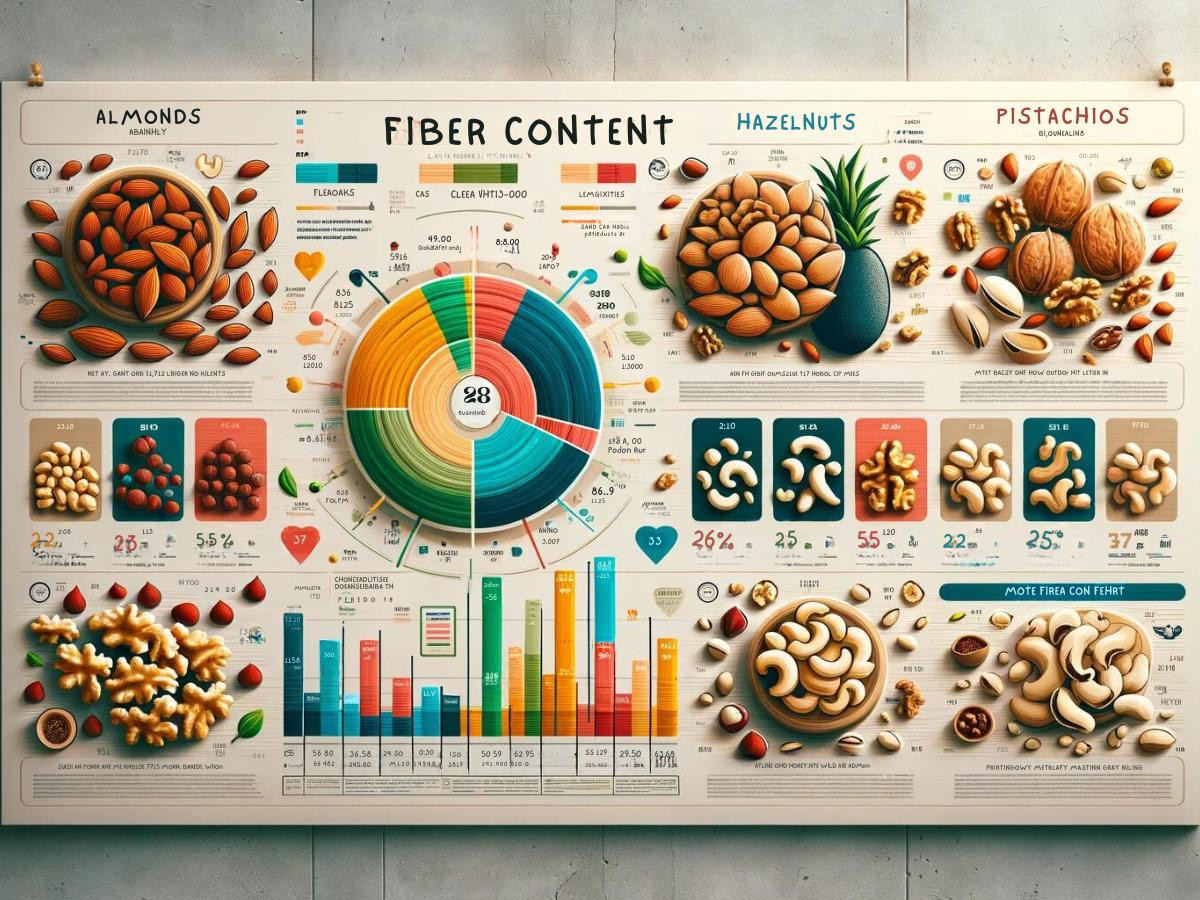
Macadamia nuts are known for their rich, buttery flavor and high content of monounsaturated fats, making them a popular choice among nuts.
Compared to other nuts, macadamia nuts are relatively high in fat and low in fiber. This composition can influence how they are digested.
Digestibility of Macadamia Nuts:
High-Fat Content: The high monounsaturated fats in macadamia nuts mean they can be more slowly digested than foods high in carbohydrates or proteins. Fat takes longer to leave the stomach, so macadamia nuts might stay in your digestive system a bit longer, providing a slow release of energy but potentially causing discomfort for those sensitive to high-fat foods.
Low Fiber Content: Unlike other nuts that are high in fiber, macadamia nuts have relatively low fiber content. This can make them easier to digest for some people since excessive fiber can lead to bloating and gas in sensitive individuals.
Are They Hard to Digest?
Most people find macadamia nuts not particularly hard to digest, especially when consumed in moderation.
However, their rich fat content could pose digestive challenges for some, especially if consumed in large quantities.
Eating a lot of any high-fat food in a short period can overwhelm the digestive system, leading to discomfort such as bloating or indigestion.
Tips for Easier Digestion:
Moderation: Enjoying macadamia nuts in moderate amounts can help prevent potential digestive discomfort due to their high-fat content.
Chewing Well: Thoroughly chewing macadamia nuts can aid digestion by mechanically breaking them down into smaller particles, making it easier for digestive enzymes to do their work.
Incorporation in Meals: Eating macadamia nuts as part of a balanced meal can help slow the absorption of fats and reduce the impact on your digestive system.



